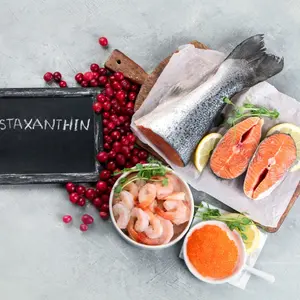

Food, Farming and Nutrition

Food, Farming and Nutrition
What Are Epinutrients?
Epinutrients are a powerful force in longevity and controlling how our genes are expressed, but you may have never heard of them. What are they, and where can we find them?
Epinutrients are compounds found in whole foods that can regulate gene expression (i.e., epigenetic regulators) and turn on processes that benefit our health and lifespans. This epigenetic mechanism turns genes on and off via several processes, including by DNA methylation.
In a randomized controlled clinical trial that looked at epigenetic age of healthy adult males using an eight-week lifestyle intervention that included diet, sleep, exercise and relaxation guidance, and supplemental probiotics and phytonutrients, the treatment group scored 3.23 years younger at the end of the program. Those in the treatment group also scored an average 1.96 years younger compared with the control group at the end of the program, suggesting that diet and lifestyle interventions may reverse epigenetic aging.
Let’s take a look at the top epinutrients contained within whole foods, and where we can find them.
Top Epinutrients
- Folate: The single most important nutrient involved in genetic expression, folate is essential for DNA synthesis and repair.
Food sources: green leafy vegetables, asparagus, mushrooms, eggs, poultry, sunflower seeds, rosemary, sage, cilantro - Vitamin B12: A key player in folate metabolism and the methylation cycle, vitamin B12 is essential for mitochondrial energy production and neuronal cell membranes, among many other roles.
Food sources: seaweed, shiitake mushrooms, liver, fish, beef, eggs, poultry, nutritional yeast - Betaine: Used in the methylation cycle, betaine can also be converted into folate.
Food sources: spinach, beet, egg yolk, liver, sunflower seeds - Choline: Choline is involved in the synthesis of neurotransmitters and healthy lipid membranes and is essential for cognitive development and brain function.
Food sources: cauliflower, seaweed, shiitake and maitake mushrooms, egg yolk, liver, flaxseeds, fish - Epigallocatechin gallate (EGCG): An important flavonoid, EGCG is a powerful methylation adaptogen that may prevent hypermethylation and may support the re-expression of good genes through passive demethylation.
Food sources: berries, apples, plum, avocado, pear, nuts, teas (green, white, oolong, and black) - Curcumin: Another member of the flavonoid family, curcumin may be able to both add and reverse excess or erroneous methylation marks on our DNA.
Food sources: turmeric, curry - Rosmarinic acid: With potent antioxidant and anti-inflammatory properties, rosmarinic acid can also help optimize and rebalance DNA methylation.
Food sources: rosemary, mint, thyme, sage, oregano, basil, lemon balm, marjoram - Quercetin: A DNA methylation adaptogen and a potent senolytic (i.e., inhibits the accumulation of senescent cells and slows down inflammatory damage caused by these cells and the aging process), quercetin helps to optimize genetic expression and slow down aging.
Food sources: apples, berries, broccoli, cocoa, capers, chia seeds, leafy greens, onion, pomegranate, fenugreek, cinnamon, basil, dill - Iron: This mineral contributes to DNA synthesis and is a cofactor for the TET enzymes that remove methyl groups from hypermethylated genes.
Food sources: spinach, tomato, liver, salmon, beef, legumes, cashews, dark chocolate - Vitamin A: This fat-soluble vitamin is essential for many functions in our body, including stem cell reprogramming and the growth and specialization of all cells.
Food sources: Liver and eggs contain preformed vitamin A, and many colorful vegetables contain its precursors (carotenoids), such as sweet potato, spinach, pumpkin, carrot, grapefruit, orange tomato, broccoli, and dark leafy greens. - Vitamin D: An important regulator of the expression of hundreds of genes, vitamin D is essential for overall health and optimal aging.
Food sources: salmon, sardines, liver, egg yolk, turkey, chicken, and sun-exposed mushrooms - Vitamin C: A well-known antioxidant, vitamin C also works together with iron to support TET enzyme function and vitamin A to increase stem cell reprogramming.
Food sources: kiwis, grapefruit, strawberries, red bell peppers, broccoli, Brussels sprouts, apple, spinach
A Note on Supplements
While it may be tempting to reach for the supplements to receive the benefits of epinutrients, isolating individual nutrients takes away the benefit of synergy between the components in whole foods, which can leave room for potential risk. Scientists studying epigenetics suggest that the whole-foods diet approach that provides many lower-dose nutrients simultaneously may be more effective than a single nutrient.
REFERENCES
Fitzgerald, K. (n.d.). Epinutrients — the secret ingredient that makes food your medicine. https://www.drkarafitzgerald.com/2022/02/15/epinutrients-make-food-your-medicine
Fitzgerald, K., et. al. (2021, April 15). Potential reversal of epigenetic age using a diet and lifestyle intervention: a pilot randomized clinical trial. https://www.aging-us.com/article/202913/text


 By
By







